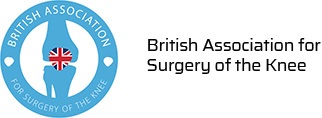Jumper's Knee
What is Jumper’s Knee?
Jumper’s knee, also known as patellar tendinitis, is inflammation of the patellar tendon that connects your kneecap (patella) to your shinbone. This tendon helps in the extension of the lower leg.
Causes of Jumper’s Knee
Jumper’s knee usually results from repetitive trauma or overuse, particularly from sports activities that involve jumping such as basketball or volleyball. Therefore, this condition is known as jumper’s knee. Rarely, this condition may also occur because of an acute injury to the tendon that has not healed properly.
Symptoms of Jumper’s Knee
Pain over the patellar tendon is the first symptom of jumper’s knee. You may also have pain during activities, especially jumping or kneeling. Rarely, swelling around the tendon may be seen.
Diagnosis of Jumper’s Knee
This is based on an evaluation of your symptoms and physical examination of the knee. An X-ray of the knee may be requested to ensure that there is no problem involving the bones or bone spur around the knee. An MRI scan can reveal changes within the substance of the tendon.
Treatment Options for Jumper’s Knee
Treatment is mostly conservative for this condition.
Treatment options for jumper’s knee:
- Rest the injured knee and avoid activities such as running and jumping that worsen the condition.
- Non-steroidal anti-inflammatory medications (NSAIDs) may be prescribed to provide relief from pain and swelling associated with patellar tendinitis.
- Stretching before exercising is important to prevent the recurrence of patellar tendinitis. These exercises can also help strengthen the patellar tendon and nearby muscles such as the quadriceps, hamstrings and calf muscles. Physical therapy plays an important role .
- The application of ice to the affected area helps to control the inflammation and reduce the swelling.
- A knee support or strap may help .
Despite all conservative measures, if the symptoms remain persistent and disabling, surgery may be an option.
During your consultation, Mr Taneja will discuss and recommend the best treatment option for you, after examining your knee and reviewing the investigations.









